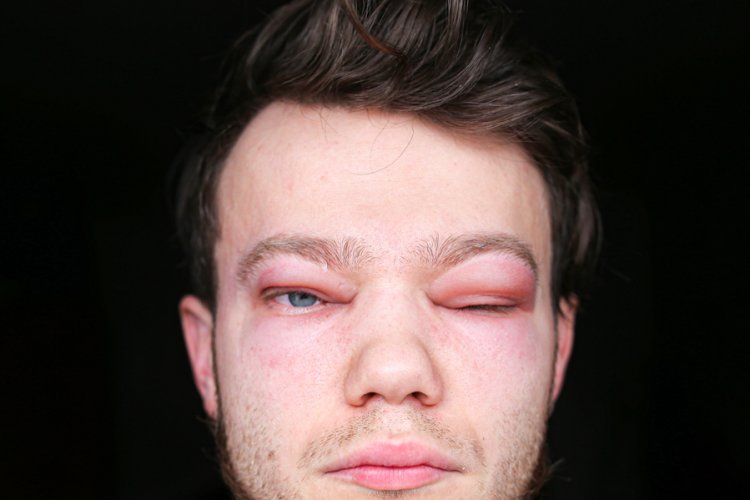Insights into Angioedema: Unraveling Causes and Complications
Angioedema: Understanding the Condition Angioedema, often referred to as angioneurotic edema, presents as a form of swelling beneath the skin, distinct from the surface swellings characteristic of hives. This condition shares similarities with hives but manifests in deeper tissues, causing discomfort and sometimes serious complications. In this article, we delve into the causes, symptoms, diagnosis, and treatment options for angioedema to provide comprehensive insight into this condition.

Causes of Angioedema:
Angioedema can stem from various triggers, with allergic reactions being a prominent cause. When the immune system detects foreign substances, such as allergens, it releases histamine and other chemicals into the bloodstream, leading to swelling. However, in many cases, the precise cause of angioedema remains unidentified. Some common triggers include exposure to animal dander, extremes of temperature, certain foods (e.g., shellfish, nuts), insect bites, medications (e.g., antibiotics, NSAIDs), pollen, and autoimmune diseases like lupus. Additionally, hereditary angioedema, a genetic condition, may run in families and exhibit different triggers and complications.
Symptoms of Angioedema:
The hallmark symptom of angioedema is sudden swelling beneath the skin's surface, often concentrated around the eyes and lips but may extend to the hands, feet, and throat. This swelling may be accompanied by welts or hives on the skin's surface and can be painful and itchy. In severe cases, individuals may experience abdominal cramping, breathing difficulty, swollen eyes and mouth, and chemosis (swelling of the lining of the eyes).
Diagnosis of Angioedema:
Diagnosing angioedema involves a physical examination to assess the extent of swelling and inquire about potential triggers. In cases where the throat is affected, abnormal breathing sounds (stridor) may be detected. Blood tests or allergy testing may also be conducted to identify underlying causes or allergens.
Treatment Options for Angioedema:
Treatment approaches for angioedema vary depending on the severity of symptoms. Mild cases may not require intervention, while moderate to severe symptoms may necessitate treatment. It's crucial for individuals with angioedema to avoid known triggers and allergens. Treatment options may include:
- Antihistamines to counteract histamine release
- Corticosteroids to reduce inflammation
- Epinephrine shots for individuals with a history of severe symptoms
- Inhaler medications to alleviate breathing difficulties
In cases where breathing difficulties arise, seeking immediate medical assistance is imperative to prevent life-threatening complications.
Outlook for Angioedema:
For most individuals, angioedema that doesn't affect breathing is uncomfortable but typically resolves within a few days. However, severe cases require prompt medical attention to prevent complications.
When to Seek Medical Help:
It's essential to contact a healthcare provider if angioedema does not respond to treatment, worsens in severity, or if the individual has never experienced it before. Emergency medical assistance should be sought if symptoms include abnormal breathing sounds, difficulty breathing or wheezing, or fainting.
In conclusion, angioedema presents challenges due to its sudden onset and potential for serious complications. Understanding its causes, symptoms, and treatment options empowers individuals to manage this condition effectively and seek timely medical intervention when necessary.
#Angioedema #CausesOfAngioedema #AngioedemaSymptoms #DiagnosisOfAngioedema #AngioedemaTreatment #HereditaryAngioedema #AngioedemaTriggers #AngioedemaManagement #AngioedemaComplications #Health #Allergies #SkinConditions #MedicalInsights
Disclaimer:
The information provided in this article is for educational purposes only and should not be considered medical advice. If you have any health concerns or are experiencing symptoms, it is important to consult with a healthcare professional, such as a doctor or clinic, for proper diagnosis and treatment. Always seek the advice of your doctor or other qualified health provider with any questions you may have regarding a medical condition. Do not disregard professional medical advice or delay in seeking it because of something you have read in this article.
What's Your Reaction?





















